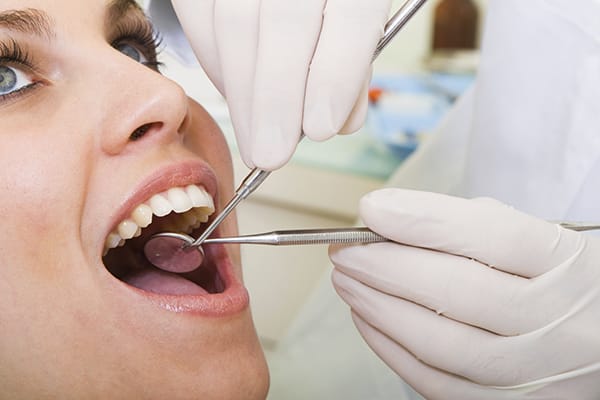People find a variety of reasons not to visit the dentist, and dental anxiety is usually at the top of the list. According to the Dental Organization for Conscious Sedation, about 30 percent of the population avoids going to the dentist because of this fear. For about 4 percent of the population, this fear is immobilizing, and is classified as dental phobia.
Whether it’s fear of the needle, the smells, or the overall pain of dental procedures, this fear keeps people from seeking the dental care they truly need. This is why we, at Kristen Ritzau, DDS offer sedation dentistry.
Sedation dentistry is a way of working on your teeth without the anxiety that comes with it. There are three types of sedation commonly used today:
- Inhalation sedation is usually in the form of laughing gas, and is usually administered by a small hood placed over your nose. The gas produces some tingling, and an overall sense of well-being, while also increasing your pain tolerance. You still receive a local anesthetic for most procedures.
- Oral sedation is the most commonly used sedation for dentistry today. It is taken by mouth, so there are no extra needles involved. Although many patients usually receive a local anesthetic as well. The level of sedation is mild, but will put you in a state of constant relaxation. While you usually feel as if you have slept throughout the procedure, you remain conscious enough to respond to commands.
- Intravenous (IV) sedation is administered directly into the bloodstream for a quicker effect than oral sedation. This is still a moderate sedation, so although you feel as if you were asleep you still respond to external stimuli. With IV sedation the dentist can continuously adjust the flow of medication.
If you choose oral or IV sedation you will need someone you trust to drive you home after the appointment. The sedatives cause extreme relaxation and memory loss, so although it will feel like you were put to sleep, you will be alert during the procedure.
You should consider sedation dentistry if:
- You have a high level of fear or anxiety when going to the dentist.
- You have a strong fear of needles.
- You need extensive dental work.
- You have a sensitive gag reflex.
- You have a lower pain threshold.
Sedation dentistry is particularly helpful for when you have a complex or relatively long dental procedure. You can shorten the process by getting it all done in one visit rather than stretching out the work.
Regular cleanings and dental checkups are important to maintaining oral health. If you are plagued by dental anxiety, talk to Kristen Ritzau, DDS about the possibility of getting sedated during dental procedures.

